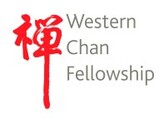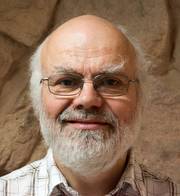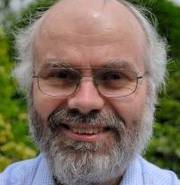Dharma Library
A large collection of articles, from past issues of New Chan Forum and more besides.
Search by keywords, using the search box
Or select articles by various categories such as for newcomers / highlighted, topic or author - click on the buttons found below the listed articles.
-
The Prajnaparamita Heart Sutra: an explication
Simon Child |Read more of: The Prajnaparamita Heart Sutra: an explicationWe’ve been reciting the Prajnaparamita Heart Sutra as part of the Morning Service. It’s not an easy text to understand so we may end up reciting words blindly without really knowing what we’re reciting. Sometimes – and I don’t think I’ve done it for a while – I talk through the Heart Sutra to give you an idea of what’s in there. We can begin with the title: what it’s about, where it comes from.
…
-
Investigating the Precepts
Simon Child |Read more of: Investigating the PreceptsAn important component of Chan Buddhist practice is the practice of the Precepts. For lay practitioners the five lay precepts are the basis. There are several other formulations such as eight precepts, ten precepts, Bodhisattva precepts, and the monastic precepts which are counted in the hundreds. I shall leave those for another day and focus here on the basic five lay precepts of: not killing;…
-
Ten Years On: Remembering Dr John Crook
Simon Child |Read more of: Ten Years On: Remembering Dr John CrookFounding Teacher of the Western Chan Fellowship
On 17 July 2021, ten years after the death of John Hurrell Crook at the age of 80, the Western Chan Fellowship held a Zoom gathering to remember and celebrate this remarkable man and teacher. The following is an adaptation of a talk written by Simon Child for that gathering.
John had such a full and diverse life that it’s not possible for me to…
-
When the Opposites Arise, the Buddha Mind is Lost
Simon Child |Read more of: When the Opposites Arise, the Buddha Mind is Lost2020 brought many changes for all of us. We experienced unwelcome curtailments on our freedoms such as lockdown and tiered restrictions on travel and meeting others, and on how we conducted ourselves such as in shopping and mask wearing. We experienced significant changes in working patterns, such as furlough, or loss of employment or transfer to home working, or coping with COVID-safe workplace…
-
Practising in current times
Simon Child |Read more of: Practising in current timesSimon reflects on impermanence and non-self in the context of the COVID-19 pandemic.
I felt a dilemma when our editor Pat Simmons asked me to write an article for this issue of New Chan Forum. Should I write about how our lives and practice are affected by the current COVID-19 pandemic – clearly a major topic – or should I write on a more traditional teaching theme? How could I consider not…
-
Habit-Seeds
Simon Child |Read more of: Habit-SeedsThe first part of this dharma talk appeared in New Chan Forum 57, under the title The Five Skandhas. Here we continue and conclude the transcription of this dharma talk, which was given on a Silent Illumination retreat in September 2017.
-
The Five Skandhas
Simon Child |Read more of: The Five SkandhasOur Guiding Teacher, Chan Master Simon Child, Jing-hong Chuan-fa, is the second Western Dharma heir of the late Chan Master Sheng Yen of Taiwan, receiving Dharma Transmission in 2000. This is the first part of a transcription of a dharma talk he gave on a Silent Illumination retreat in September 2017. Our thanks go to the transcribers. The second part will be published as ‘Habit Seeds’
-
The Edge of a Cloud
Simon Child |Read more of: The Edge of a CloudToday we have a blue sky, with a few little clouds. Yesterday we had plenty of clouds but not so much blue sky. Weather changes. Clouds slide around in the sky. Of course the sky is always blue, but we can’t always see the blue because of the clouds. How do we understand the cloud? A fluffy object floating in the sky; if we know what it’s made of we think of it as water drops. Sometimes it sinks…
-
The Four Noble Truths and Right Effort
Simon Child |Read more of: The Four Noble Truths and Right EffortJohn Crook used to like to say that the essence of Chan is self-confrontation. I’ve already spoken about Dogen’s saying, “to study the Buddha way is to study the self ”. And on the first evening here a few of you mentioned you came here to understand who you are. Why this emphasis on self, who we are, confronting ourselves. What’s the use of it?
I’ve spoken about how your koans bite back on you,…
-
Shattering the Great Doubt
Simon Child |Read more of: Shattering the Great DoubtSimon Child continues his account of koan practice, introduced in the last issue of New Chan Forum, by describing the breakthrough to enlightenment. We thank Jeanine Woodward who transcribed the original recordings of these edited retreat talks.
What do we think we’re playing at? We are sitting here, with our minds mixed up, confused, upset, tangled up, knotted up by words from a thousand years…
Featured
By author
More
©Western Chan Fellowship CIO 2025. May not be quoted for commercial purposes. Anyone wishing to quote for non-commercial purposes may seek permission from the WCF Secretary.
The articles on this website have been submitted by various authors and the views expressed do not necessarily represent the views of the Western Chan Fellowship.
Permalink: https://w-c-f.org/Q358


